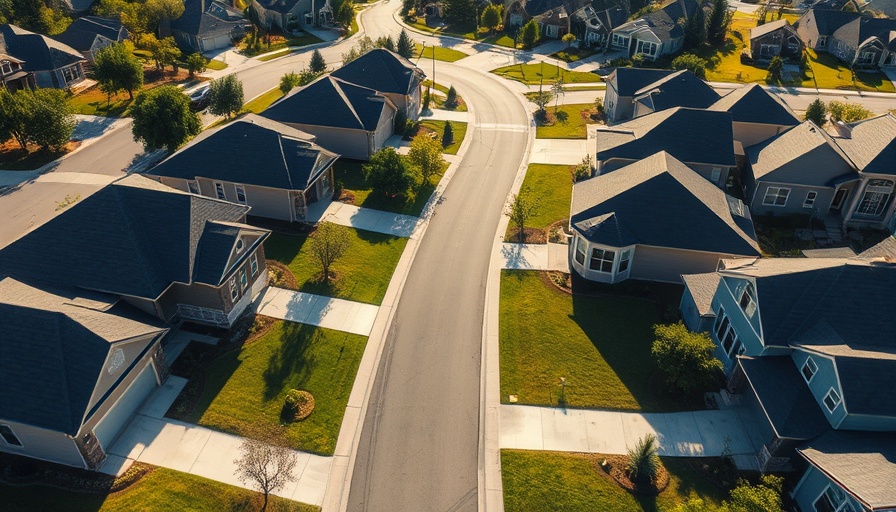
SEO Keyword: Millennials Buying Smaller Homes
The shifting landscape of homeownership has revealed a striking trend—millennials are increasingly opting for smaller homes that prioritize luxury and comfort over sheer size. As the largest group of home buyers in the United States, millennials are not just reshaping the market; they're redefining what the American dream looks like.
What Influences Millennials’ Home Choices?
For millennials aged 25 to 43, homeownership remains a pivotal aspect of their aspirations. The old notion that the biggest house wins is losing its grip as this generation prioritizes amenities, convenience, and location. Recent data shows that over half of millennials favor homes with high-end features over larger spaces. Their desire for shorter commutes and vibrant communities reflects a shift toward prioritizing life quality rather than mere square footage.
Decoding the Demand: Size vs. Quality
While millennials still seek adequate space—averaging 2,408 square feet, the highest requested by any generation—they are willing to sacrifice some square footage for upgraded interiors. Builders are taking note; recent statistics indicate a decrease in the average home size, from 2,300 square feet in 2019 to 2,150 square feet in 2024—the smallest median in fifteen years.
How Are Builders Adapting to Millennial Preferences?
As millennials embrace a lifestyle that favors quality over quantity, builders are adapting their strategies. NAHB Chairman Buddy Hughes emphasizes the importance of aligning construction practices with the unique needs of millennial families, showcasing a willingness to build high-quality homes that reflect buyers’ preferences. This accommodation signifies a proactive response to a generation that is reshaped by tastes and needs rather than economic pressures alone.
Future Trends in Housing: Understanding the New Norm
The trends suggest a future where smaller, highly customized homes become the norm. With a focus on sustainable living and community-centric designs, millennials are paving the way for innovative housing solutions that don't just meet needs but transform lifestyles. Developers are likely to invest further in eco-friendly building practices and community engagement initiatives, creating spaces that are not only livable but also enriching.
The Emotional Connection to Home
This new approach underscores a deep emotional connection millennials have with their living spaces. Rather than mere structures, these homes are seen as sanctuaries for personal connection and mental well-being. Families are looking for homes that enhance their lifestyles—spaces touch their experiences, embody their values, and resonate with their identities.
Conclusion: Embracing Change in Homeownership
The housing market stands at a fascinating crossroads, where millennials are driving a paradigm shift towards smaller, high-quality living spaces. As their preferences reshape builder strategies, the notion of homeownership evolves, embracing a community-oriented, sustainable future. Understanding these shifts is crucial for potential buyers and developers alike, ensuring they remain relevant in an ever-changing market.
 Add Row
Add Row  Add Element
Add Element 


 Add Row
Add Row  Add
Add 

Write A Comment